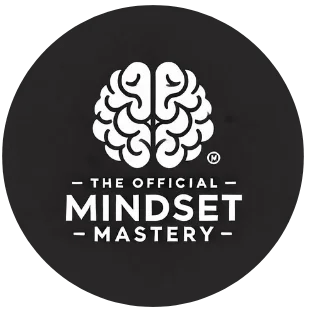In today’s fast-paced world, stress has become an unwelcome companion for many. However, the ancient practice of mindfulness offers a powerful antidote to this modern ailment. Mindfulness, rooted in Buddhist meditation traditions, has gained significant popularity in recent years as a scientifically-backed method for stress relief. A 2018 study published in the Journal of Clinical Psychology found that mindfulness-based interventions led to a 58% reduction in anxiety symptoms and a 54% decrease in depressive symptoms. Let’s explore how you can harness the power of mindfulness to find inner calm and navigate life’s challenges with greater ease.
Understanding mindfulness and its benefits for stress reduction
Mindfulness is the practice of intentionally focusing your attention on the present moment, without judgment. It involves observing your thoughts, feelings, and sensations as they arise, without getting caught up in them. This simple yet profound practice can have a transformative effect on your mental well-being.
The benefits of mindfulness for stress relief are numerous and well-documented. Research has shown that regular mindfulness practice can :
- Lower cortisol levels, the body’s primary stress hormone
- Reduce symptoms of anxiety and depression
- Improve sleep quality and duration
- Enhance emotional regulation and resilience
- Boost immune function and overall physical health
One of the key ways mindfulness helps alleviate stress is by breaking the cycle of rumination. When we’re stressed, our minds often get stuck in a loop of negative thoughts and worries about the future. Mindfulness interrupts this pattern by bringing our attention back to the present moment, where we can find a sense of calm and clarity.
Moreover, mindfulness cultivates a non-reactive awareness of our experiences. This means we can observe stressful thoughts or situations without immediately getting caught up in them or reacting impulsively. This creates a space between stimulus and response, allowing us to choose how we want to respond to stress rather than being driven by automatic reactions.
Essential mindfulness techniques for everyday stress relief
Incorporating mindfulness into your daily routine doesn’t have to be complicated or time-consuming. Here are some simple yet effective techniques you can practice throughout your day :
- Mindful breathing : Take a few minutes to focus on your breath. Notice the sensation of air flowing in and out of your nostrils or the rise and fall of your chest. When your mind wanders, gently bring your attention back to your breath.
- Body scan : Systematically focus your attention on different parts of your body, from your toes to the top of your head. Notice any sensations or tension, and try to relax each area as you scan.
- Mindful walking : As you walk, pay attention to the sensation of your feet touching the ground, the movement of your legs, and the rhythm of your breath. Notice the sights, sounds, and smells around you.
- Loving-kindness meditation : Cultivate feelings of compassion and goodwill towards yourself and others. Silently repeat phrases like “May I be happy, may I be healthy, may I be safe, may I live with ease” for yourself and then extend these wishes to others.
Thomas Harper, a mindfulness expert and author of “Unlock Your Potential : A Journey to a Growth Mindset,” recommends starting with just 5-10 minutes of practice each day. “Consistency is key,” he says. “It’s better to practice for a short time every day than to do longer sessions sporadically.”
Integrating mindfulness into your daily life for lasting stress reduction
While formal meditation practices are valuable, the real power of mindfulness lies in integrating it into your everyday activities. Here are some ways to infuse mindfulness into your daily routine :
| Activity | Mindfulness Practice |
|---|---|
| Eating | Pay attention to the colors, textures, and flavors of your food. Eat slowly and savor each bite. |
| Showering | Notice the sensation of water on your skin, the scent of soap, and the sound of running water. |
| Commuting | Instead of scrolling through your phone, observe your surroundings or practice mindful breathing. |
| Working | Take regular “mindful breaks” to check in with your body and breath. Set reminders if needed. |
Remember, mindfulness is not about achieving a particular state or eliminating stress completely. It’s about developing a different relationship with stress. By observing your thoughts and feelings with curiosity and compassion, you can learn to respond to stress more skillfully and with greater ease.
Thomas Harper, drawing from his experience as a consultant on employee motivation, emphasizes the importance of creating a mindful work environment. “Encouraging mindfulness practices in the workplace can lead to reduced stress levels, improved focus, and increased job satisfaction,” he notes. Consider introducing short meditation breaks or mindfulness workshops in your office to promote a culture of well-being.
Overcoming common challenges in mindfulness practice
As you embark on your mindfulness journey, you may encounter some challenges. Here are some common obstacles and strategies to overcome them :
- “I don’t have time” : Start with just 1-2 minutes a day and gradually increase. Remember, even brief moments of mindfulness can make a difference.
- “My mind is too busy” : It’s normal for thoughts to arise during meditation. The practice is not about stopping thoughts, but noticing them without getting caught up in them.
- “I’m not doing it right” : There’s no “perfect” way to practice mindfulness. The key is to approach it with curiosity and non-judgment.
- “I feel restless or uncomfortable” : This is common, especially when starting out. Try different postures or practices to find what works best for you.
Harper suggests using technology to support your practice. “There are many excellent apps and online resources that can guide you through meditations and help you stay consistent,” he says. Some popular options include Headspace, Calm, and Insight Timer.
As you continue your mindfulness practice, be patient with yourself. Like any skill, mindfulness takes time to develop. Celebrate small victories and remember that each moment of awareness is a step towards greater peace and resilience.
By incorporating these mindfulness techniques into your daily life, you can cultivate a sense of inner calm that will serve as a powerful buffer against stress. As you become more attuned to the present moment, you’ll find yourself better equipped to handle life’s challenges with grace and equanimity. Start your mindfulness journey today and discover the transformative power of living with greater awareness and intention.





